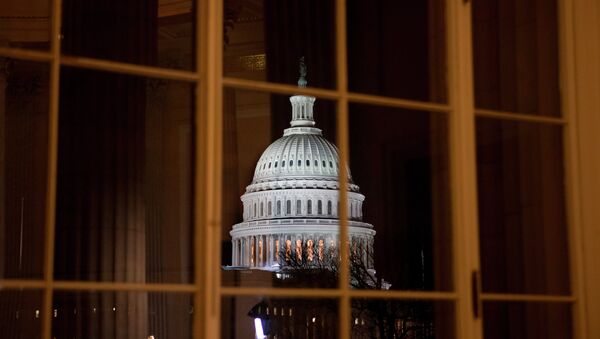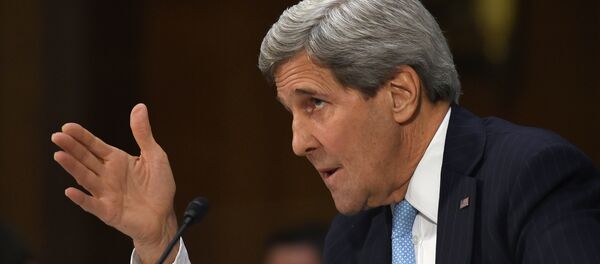WASHINGTON (Sputnik) — The US Senate Foreign Relations Committee voted unanimously to advance the bill that gives Congress the power to review a final nuclear deal with Iran.
"The yays are 19 the nays are 0," the clerk announced the results of the final Committee vote on Tuesday.
The Iran Nuclear Agreement Review Act, introduced by the Senate Foreign Relations Committee Senator Committee Bob Corker, would require US President Barack Obama to submit the final Iran nuclear agreement for a congressional approval.
"What we have before us today is a bill that forces the [Obama] administration, before they are able to lift the sanctions, that we collectively put in place that brought them [Iran] to the [negotiating] table,” Senator Corker said prior to the committee’s vote on the bill on Tuesday.
“It forces the Administration to bring to us every detail if there happens to be a final agreement, every detail,” Corker stressed.
Ahead of the Committee’s vote on Tuesday, the White House said that President Obama was willing to sign Corker’s legislation, although earlier in April 2015, Obama warned against lawmakers voting on any legislation that that could affect the outcome of the Iran nuclear negotiations before a final agreement is reached.
As part of the deal, Iran will not build new enrichment facilities or heavy water reactors for 15 years, and will also limit its stockpile of enriched uranium while abiding by enhanced transparency procedures. The number of centrifuges operating in Iran will be cut by more than two-thirds in ten years.
In return, the United States and the European Union promised to gradually lift all nuclear-related sanctions imposed against Iran. The UN Security Council will only partially lift its sanctions, with the existing restrictions on conventional arms and ballistic missiles as well as core UN provisions dealing with the transfer of sensitive technologies and activities to remain in place. US anti-Iran sanctions for terrorism, human rights abuses and ballistic missiles have not been cancelled.
“Let's send a message to Tehran that sanctions relief is not a given and certainly not a prize for signing on the dotted line. Iran must fully comply with all provisions of an agreement that affectively dismantles its nuclear weapons infrastructure and verifies compliance with every word of the deal,” ranking Democrat on the Senate Foreign Relations Committee Robert Menendez said on Tuesday.
The political framework reached on April 2 stipulates that existing sanctions against Iran will be phased out over time. The final agreement between Iran and the P5+1 group of countries is set to be achieved by June 30, 2015.



